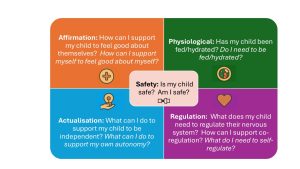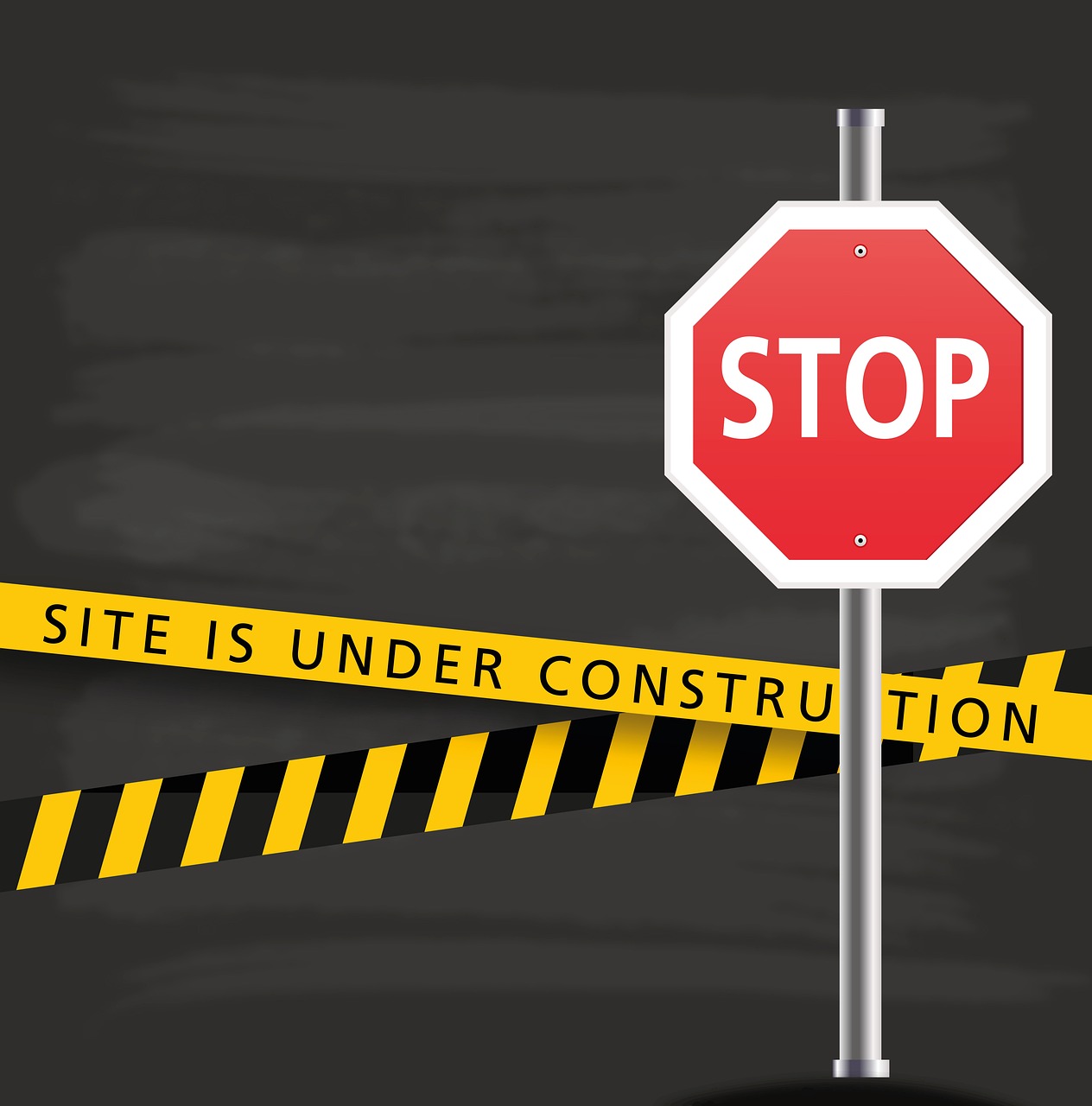What if I’m not doing the right thing
I get asked this question a lot by parents of neurodivergent children who are worried about trying new strategies or who do parenting in ways that don’t map neatly onto conventional notions of parenting. What I mean by ‘conventional notions of parenting’ is expectations that children will be obedient, that parents set the agenda and children will comply, that children can be drilled in particular behaviours by rewards or negative consequences for disobedience. (See this great blog by Sussex Psychological Therapy Centre on why this conventional approach doesn’t work so well with neurodivergent children.) Next to this conventional approach; where parents of neurodivergent children are using, for example, low demand parenting; other parents or professionals might interpret such an approach as lax parenting.
I’m not sure exactly sure what the answer to the (title) question is, but I think I can break down the question in ways that can be helpful, to consider instead: How can I make a good decision about what I do?
- Firstly, I’m not convinced that there is a singular and absolute ‘right thing’ that applies all the time. What ‘right’ might look like depends on your child (or children), what they need, who you are, what you believe, and what you need. Ultimately, it’s probably constantly renegotiated as part of the relationship between you. So rather than ‘right’, a reframe in terms of ‘needs’ might be useful. What does your child need? What do you need? I’m going to borrow and adapt Maslow’s Hierarchy of Needs to give some prompts to think about this. I’m not going to think about these prompts as a hierarchy though, because in different circumstances, different considerations might be paramount:

By considering both your needs and your child’s (your children’s) you’ll have a perspective to inform what decisions you make.
- The second point I want to make is that we can easily get stuck in patterns of thinking that tell us ‘I can’t’. ‘I can’t try this because…’, ‘This won’t work because…’. Sometimes we feel so worn down that we tell ourselves by default that something won’t work, but we don’t give it a chance. If you have a sense of what your child needs (and maybe you’ve got some information on this), and you know that maybe something isn’t quite working, this gives you something to go on, a starting point. All you need is a chink of possibility, ‘I could try…’, ‘If X then I could do Y…’. It might be that you can start small, ‘if this condition is in place then…’ or ‘a first step could be…’. Thinking in this finer detailed way can help us to move towards a decision. So rather than look for ‘what’s right’ we can look for ‘what’s possible.’
If this post has resonated with you and you want to find some ways to reframe ‘am I doing this right’ thinking, please reach out to us at info@careforyoucoaching.co.uk
I can’t do this right now
I sat down this week to write my blog and … nada. No creative juices flowing. No inspiration. I consulted my list of potential blog topics, my notes from various undeveloped ideas, and did a bit of skim reading. Still no inspiration. I wandered off and did some washing up. Somewhere between rinsing an ovenproof dish and cleaning a knife, it hit me: “I can’t do this right now.” And then I thought, “maybe this (recognition) is an important resource for a carer”.
What I mean by this is that I think it can be powerful to recognise that, at any particular moment, there may be nothing left in the tank, and whatever seems needed at that moment might have to wait. I know this seems counter-intuitive as a lot of my blogs are about taking action. It’s important to acknowledge, however, that there are times, when as a carer with multiple demands upon us, we might not have capacity to take immediate action. Sometimes a negative can be affirmative!
There’s a few things that need to be considered here to qualify this:
- Is there anything that absolutely must be done now? Keeping a child safe is an obvious example. However, there might be other occasions where it’s possible to wait or pause, the thing needed may not be quite so urgent as it initially seems.
- Just because I can’t do this right now, doesn’t mean I can’t do it at all – how can I reset? If I’m not doing this thing now, what are my obligations/responsibilities here? What’s the impact of pausing? What might help me pick this thing up later (if I decide I need to)?
- Whose expectations do I need to manage and how? If you need to let anyone know that “you can’t do this right now”, how are you going to let them know? If you want to set a firm boundary, what does this involve? Where will you be meeting the other person? Is there anything the other person needs to know about what you need? Sometimes people might need you to make sense of things for them: how can you do this in a way that supports your wellbeing?
- If I can’t do this one thing, is there anything else I feel I want to do now? Is there a small piece of it I feel like I can tackle?
- If this is something I am perennially struggling with, why? What’s getting in the way of getting it done?
- Finally, it’s important to remind yourself that, it is okay pause, it is okay to stop, and it is valuable information to recognise that you don’t have capacity for something ‘right now’ and give yourself space to act on this realisation.
If this post has resonated with you and you want to find some ways to create pauses and give yourself permission to stop, please reach out to us at info@careforyoucoaching.co.uk
Finding some time for yourself
-
Why is it important to have time to myself?
How we experience time has a big impact on our sense of wellbeing. Studies (e.g. Griffin, 2021) show that informal carers often sacrifice their own time to care for their loved ones, and that this can have a big impact on their wellbeing. Urwin et al, (2023)’s study on time use by informal carers and non-carers found that a number of factors fed into carers having lower daily wellbeing than non-carers:
- Less leisure time,
- Greater time pressures (or ‘time stress’ – feeling pressure and rush to get things done in the time available),
- A greater sense of time fragmentation (where the day is broken up by caring activities).
Griffin (2021) suggests that there’s a limit to what our nervous system can process at one time. The caring load eats into time that is ours, yet having time alone is vital to replenish (2021, 26).
-
How can I find time for myself?
As carers we are often exhausted, pulled in different directions, and it can feel impossible to find time for ourselves. However, without some time to ourselves it’s difficult to get a sense of perspective or protect ourselves from burnout.
So how do we begin to make some time for ourselves?
Firstly, we can think flexibly. Our time might not look the same each week, but here and there, we may be able to snatch 20-30 minutes or more – and that is enough for something. If we can find more time, great, but we don’t need masses of time to ourselves to make a difference to our sense of wellbeing.
Secondly – what would matter most to me, to do in that time? If we are only able to find snatches of time, we want to make it count. What would make the biggest difference to us, to make time for in our day? Is it having a nap? Is it doing something creative? There may be a number of things we identify here. From this we might need to consider what is feasible in the time we have. It might be that we can’t be outside in nature because we need to stay close to our loved ones, but can I bring nature indoors? Can I use this free time plan to get out in nature at another time?
Thirdly, once you’ve decided what you might want to do with that time, how can you make it happen? It might be that you need to do some tasks to prepare for your activity. You might need to have a conversation with people to manage their expectations. It might even be that you need to give yourself permission to take that time for yourself.
Finally – remind yourself of why taking this time for you is important. With time for yourself you can reconnect with what matters to you. You can focus in and not have to be pulled in multiple directions at once. You can even slow down, which will give you capacity to go on to be busy later if you have to.
If this post has resonated with you and you want to find some time for yourself, please reach out to us at info@careforyoucoaching.co.uk.
Dealing with Carer Guilt 2
In my last blog post I talked about ‘carer guilt’: a perceived failure to provide sufficient care for the person cared for (Bennett, 2018). Specifically, guilt is a feeling that we get when we believe that we have taken actions or there is inaction that conflict(s) with our values (Brown, 2012). So for example: “I shouted, and I feel bad about that (action) because it chafes against how I want to be a calm and approachable parent.”
In that blog we explored re-evaluating what we take responsibility for in our caring, because we might feel guilty about something that was out of our control and not intended. I wanted to say a bit more about this. One thing that people I have spoken with tell me is that their autistic children will feel very sensitive to things that have gone wrong/feel wrong and will often process this by finding their safe person and attributing blame to them as a way of regaining control. As a parent it might feel automatic here to take on the responsibility for this. Indeed, we might deliberately ‘take responsibility’ here as a strategy to help our child offload and process. One thing that can stop us piling on the guilt here is to separate out the difference between our intentions in the action and the impact on our child (an idea borrowed from Stone and Heen’s work on Difficult Conversations). Often when people are upset they merge the impact of the action with the other person’s intention. So for example: You pack an itchy jumper by mistake and this ruins your child’s whole day, “it’s your fault, you made this happen, you made me do…”! Whilst you may have made a mistake, the impact, the ruining of the day, was absolutely not your intention. Your intention was to do your best, even if that didn’t happen in the way that you planned. None of the fallout of your action was intentional, and it’s key that you know this. Keeping your intention in mind can stop you going down a path of self-blame “it’s all my fault”, “I should have…”, which are known as “control fallacies” where we feel we should have control of everything.
Another part of this moving through guilt is self-compassion. There are three key components to self-compassion:
Kindness: being kind to ourselves and seeking to understand ourselves where we are.
Common humanity: being aware that we ourselves, and others, are worthy of compassion.
Mindfulness: sitting with discomfort and being aware of what is happening for us.
If we apply this to situations where we feel guilty, this might look like:
Kindness: learning to accept that we make mistakes and this is okay. Making a mistake doesn’t mean you are a bad person, it doesn’t mean you’ll always be this way, and it doesn’t mean it’s a catastrophe.
Common humanity: Humans as a whole make mistakes, mistakes are part of the way we are connected to other humans. A mistake doesn’t make us a worse human being than everyone else.
Mindfulness: There is value in experiencing and being present with guilt: to recognise it for what it is, and label it makes it less all-consuming and allows us to move on.
So to sum up:
- Remember your (good) intentions are separate from bad impacts (recognising this can lessen your sense of needing to take responsibility for everything and defaulting to self-blame)
- Practice self-compassion: recognising and labelling the guilt helps to contain it – but this also requires you to be kind to yourself and not believe that guilt tells us something absolute about ourselves (like we are a bad mum or a bad person for making this mistake).
If this post has resonated with you and you want to find ways to deal productively with your carer guilt, please reach out to us at info@careforyoucoaching.co.uk.
Dealing with Carer Guilt
I mentioned in a previous blog post that carers are often highly self-critical. Forssén et al. (2005) coined the term ‘compulsive sensitivity’ to describe how carer self-talk will often deprioritise their own needs, and blame the carer for any negative impact, or rebuke them if they seek to change the situation.
In this blog I want to talk about one of the things that underpins this self-talk: guilt. ‘Carer guilt’ is a perceived failure to provide sufficient care for the person cared for (Bennett, 2018). Specifically, guilt is a feeling that we get when we believe that we have taken actions or there is inaction that conflict(s) with our values (Brown, 2012). This is different from shame, which is where we feel worthless in ourselves rather than we feel awful about an action nor inaction. So, for example, if our child has a meltdown because of sensory overwhelm a shame response might be: “I’m an awful parent, I’m so useless”, whereas a guilt response might be “I can’t believe I didn’t pack the ear defenders. I failed to do this one thing, now we’re in a meltdown situation, and I feel bad because I didn’t remember/act as I would usually have done”. Brené Brown (2012) succinctly summarizes this difference as:
Guilt = (I think) I did something bad
Shame = (I think) I am bad.
We’re going to focus on this guilty feeling around action/inaction in this blog. Guilt among carers is particularly acute because there will often be things that are out of our control (e.g. institutional structures and limitations, the way society is organised around neurotypical experiences/an assumption of health and able-bodied access) and things that impinge upon our capacity to make things better for those we care for (our own tiredness, our inability to anticipate everything). Bennett (2018) argues that carers always believe that they should have done more, even though this guilt isn’t justified.
One approach to dealing with carer guilt:
Hopefully it’s been helpful to distinguish between guilt and shame and identify that guilt is linked to feeling bad due to action or lack of action (which then conflicts with ideas of being a good carer/parent).
This focusing in on action/inaction is important in the context of caring, because caring/parenting can become everything. Chenoweth et al (2016) report that carers are often not able to think about their own needs. The caring relationship can take over, and the carer as an individual can get lost in the relationship and the other person’s needs. There’s lots of research on how carer’s/parent’s wellbeing is directly affected by the wellbeing of the person they care for: if a child or a partner is ill or has a bad experience the carer can also experience this. Thus because caring/parenting is so crucial to the very fibre of our being, if we feel we make a mistake through action or in action this can have a profound psychological/wellbeing impact on us.
With this in mind I’m going to explore/adapt some ideas from Norman et al (2014), which they used (as part of a sustained programme) to support guilt reduction (in a therapeutic setting). (I think these ideas can be helpfully adapted, and that carers/parents out of many possible groups of people might need some help with guilt reduction!).
Firstly, having identified that guilt relates to bad feelings around action/inaction that make us feel bad as a parent carer, one thing we can do is identify where we are going into a negative thinking spiral around “I should have done…”, “I shouldn’t have…”.
It’s very easy to get into this self-recriminatory spiral, but it doesn’t always help us.
Instead, we can start to deconstruct what we are taking responsibility for.
Norman et al (2014) suggest a common thing that people do is to believe that we had information at the time of an incident/mistake. Actually, in most cases we have that information later with hindsight. A good exercise here is to ask ourselves what information we had to work with at the time (and what information came later). This can help us to shift from “I should/n’t have….” to “I wish I had known X….”.
Secondly, we can make a distinction between intentionally setting out to cause harm and an unintended mistake occurring. It’s important to acknowledge this because although we may have made a mistake, it wasn’t with malicious intent, we were being human. This can then take some of the edge of our self-recrimination.
Finally, as Norman et al (2014) and Brown (2012) point out, guilt can actually be a helpful feeling because it can highlight where what has happened doesn’t fit with our values. It can help us see that we want to make meaningful change and do things differently going forwards. So we can ask ourselves: what have I learnt from this experience? If I find myself in the same situation again, what will I do differently?
If this post has resonated with you and you want to find ways to deal productively with your carer guilt, please reach out to us at info@careforyoucoaching.co.uk.
Challenging SEND parent-blame headlines
More parent-blaming headlines this week: this time Richard Tice (Deputy Leader of Reform), who has asserted that the SEND system is “being hijacked by far too many parents who are abusing the system, taking it for a ride”. Implication: parents are the problem, and the solution is to “cut out waste and abuse”.
A quick look at contextual facts and figures can debunk Tice’s spurious assertion:
There’s lots of evidence that parents struggle to get support in the first place (let alone take advantage of it):
- Between 2017 and 2023 (on average) 23% of initial EHCP requests were denied
- by 2023 32.7% of EHCP requests were denied and in 2025 this figure had climbed to 34.6% (https://explore-education-statistics.service.gov.uk/find-statistics/education-health-and-care-plans/2025)
- So currently, over a third of parents are denied the initiation of a support process at the first hurdle. No so much of a hi-jack as a high refusal threshold…
- Where needs assessments are pursued, there are still 6.4% of cases where EHCPs are not issued.
- Often parents challenge the decision for local authorities to not offer support. The Disabled Children’s Partnership and Pro Bono Economics reported that by December 2023, the cost of SEND tribunals had risen to over £87million. Around 28% of tribunals were appeals against decisions to not pursue needs assessments/EHCPS, and overall 98% of SEND tribunals found in favour of the families (https://www.childrenscommissioner.gov.uk/blog/new-statistics-on-education-health-and-care-plans-ehcp-for-children-with-special-educational-needs/). This need to challenge local authority decisions by parents doesn’t fit with Tice’s assertion that the SEND system is being ‘taken for a ride’….
- Looking at these figures then, it would seem that the system is the problem. Indeed, the Children’s Commissioner reported in 2024 that “children want support to help them do well, but they often experience a system which is more interested in asking ‘what is wrong with you?’ than ‘how can we help?’”. Once parents have EHCPs there can be further challenges establishing appropriate support in educational settings. If Tice were to look at online forums for SEND parents, he would find they are full of parents discussing how EHCPs have been interpreted and what it means in practice, as well as seeking advice and support to advocate for their children.
Navigating the parent blame:
Parent blame is a useful political rhetoric as it locates the problem within a family and absolves politicians from responsibility to intervene. I’ve written about parent blame before because SEND parents are constantly judged and misunderstood. If like me you are affected by these headlines; because maybe they feel personal, they discredit the battles you’ve undertaken, they echo people’s disbelief or questioning; then I think it is worth reminding yourself of how educated and skilled you are. SEND parents I work with have often done a lot of research to understand and support their children’s needs and are experts on their children. Reminding yourself of this won’t make the blame go away. Indeed, Newbold Hope’s 2022 report (https://www.newboldhope.com/parent-blame-report) and the Autism and Parental Blame Project (https://www.wm-adass.org.uk/media/4mdc5wtk/autism-and-parental-blame-focus-group-report-final-may25-r3.pdf) both identified that parents of autistic children are often misunderstood and blamed (particularly mothers) where parents’ strategies to support their children’s needs were judged to be poor parenting. However, reminding yourself of what you know, your experience in doing what you do, can help reinforce a sense of your own reality, and your skill in understanding what is needed. (A quick aside here: you may feel that it is worthwhile documenting meetings too as these can be prime spaces of misunderstanding).
The other key thing is having people around you who understand your situation and bolster you: these people help support you to keep a sense of perspective when things are tough and judgmental. Examples of support groups could be: one of the National Autistic Society’s 80 local branches, or their online community; drop in sessions or workshops from Autism Central; regional CICs such as Autism and ADHD Parent Support UK CIC (aaps-uk.org) or local groups in your area.
Finally, some useful frameworks for supporting you to advocate for your children’s rights are:






